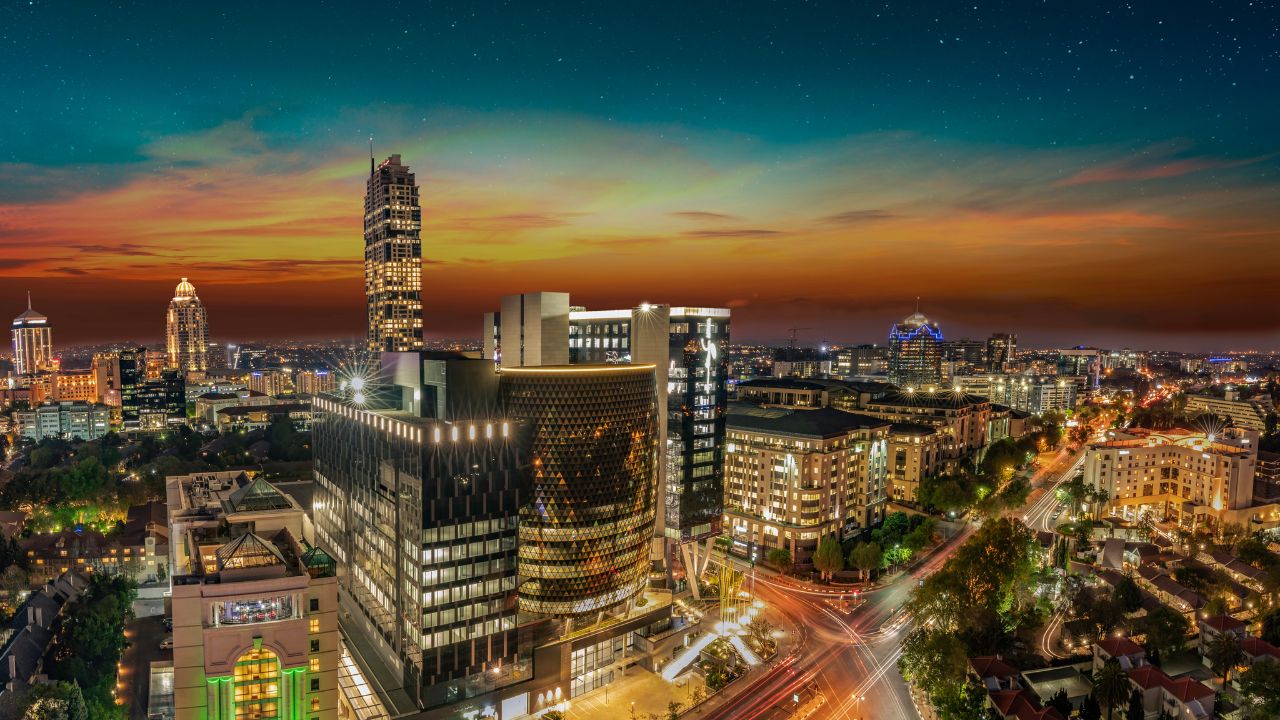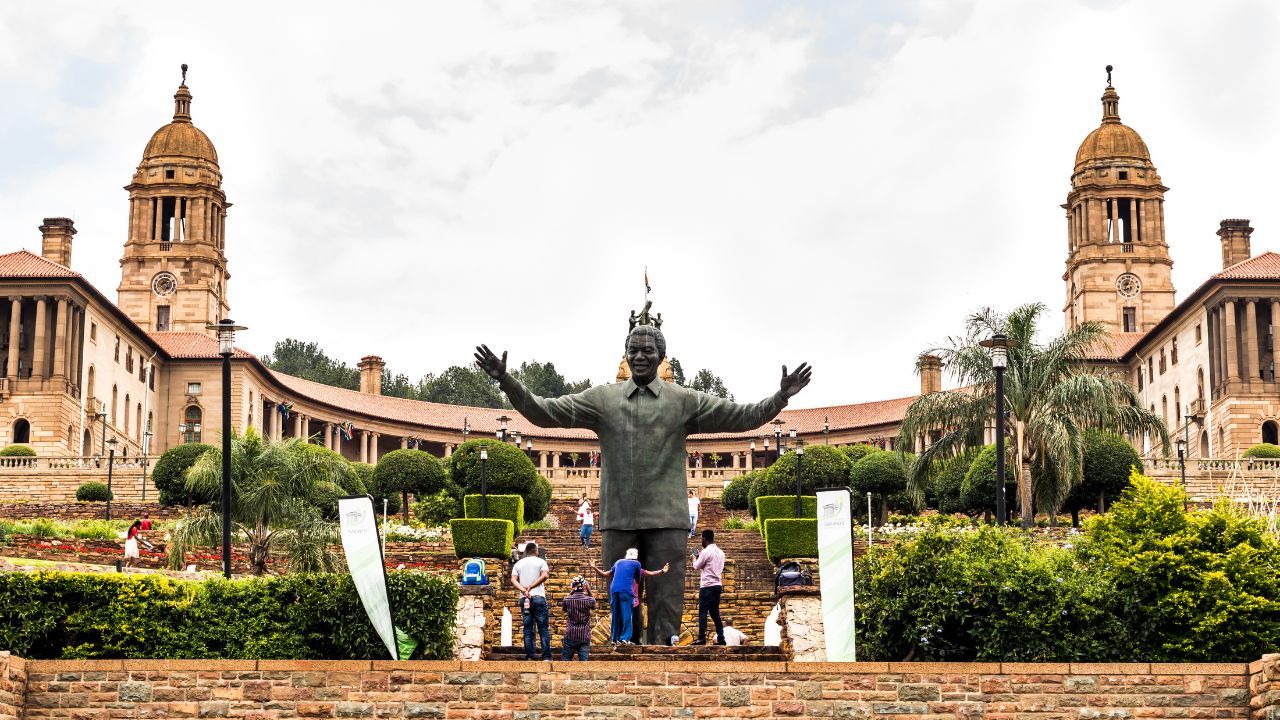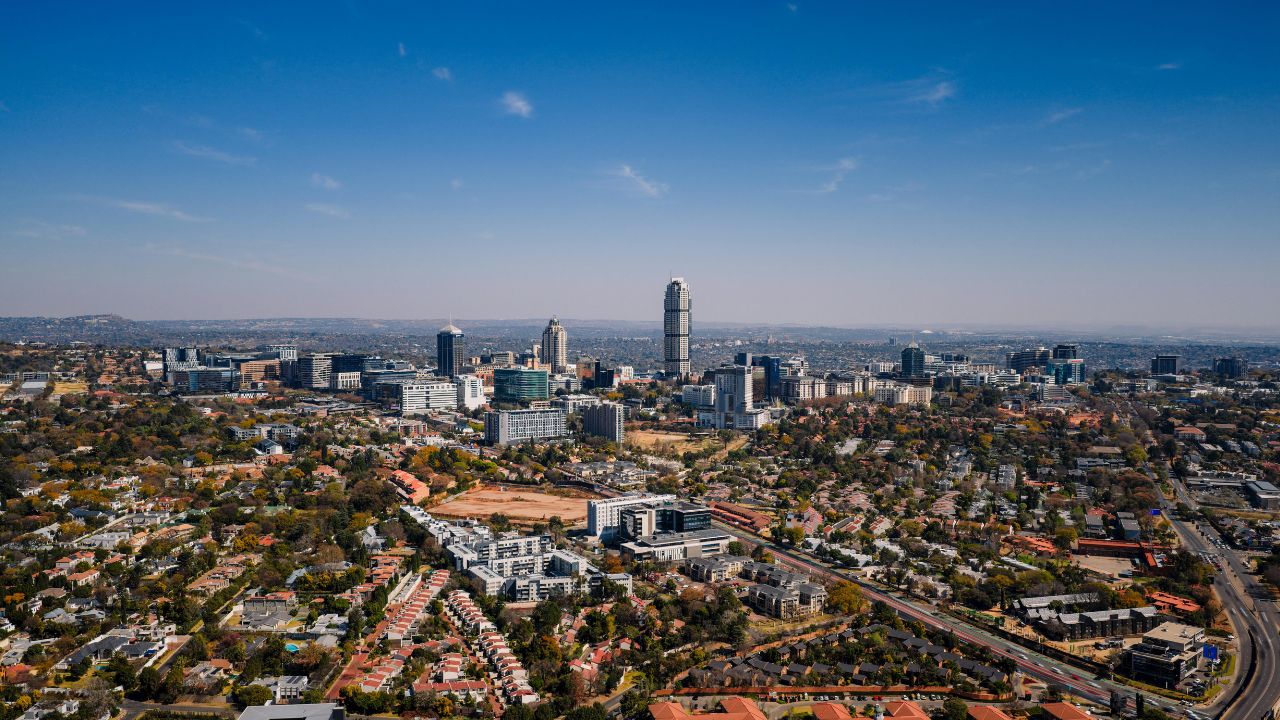South Africa Work Visa Options

Quick Visa Facts
Visa length Work visas in South Africa are generally valid for 3–5 years, depending on the type and employment arrangement.
Possible to extend? Yes, the Critical Skills, General, and Intra-company Transfer can be renewed or lead to permanent residence in certain cases.
Who can apply? Foreign nationals can apply if they have in-demand skills, a confirmed job offer, or are being transferred within a multinational company to South Africa.
Minimum Income Requirements For Critical Skills and General Work Visas, the points-based system awards points for salaries above R650,976 per year, with maximum points for salaries above R976,194; ICT visas require proof of sufficient financial means.
Time for visa applications Processing typically takes 4–12 weeks, depending on visa type, application completeness, and DHA workload.
Want to know if you can apply?
Complete a visa quiz and see if you qualify!
Dreaming of starting a new chapter in South Africa? Whether it’s the energy of Johannesburg’s business hubs, the creative pulse of Cape Town, or the innovation thriving in Durban’s tech scene, South Africa offers incredible opportunities for skilled professionals from around the world.
But before you can pack your bags and head south, you’ll need the right visa to live and work there legally. The South African government offers several types of work visas designed to attract global talent and support international business operations.
In this guide, we’ll break down the three most important work visa options for foreigners in South Africa: the Critical Skills Work Visa, the General Work Visa, and the Intra-company Transfer Work Visa. We’ll cover who each visa is for, what the requirements are, how to apply, and which one might be the best fit for your career goals.
Let’s dive in and find out which South African work visa could open the door to your next big opportunity.
Visas Overview: Who Needs a South African Work Visa?
If you’re not a South African citizen or permanent resident and you plan to work in the country, whether for a local employer, an international company, or your own business, you’ll need a valid work visa.
South Africa’s immigration system is designed to balance local employment priorities with the need for international expertise. This means that work visas are granted based on specific skill levels, job offers, or company transfers, depending on your situation.
Generally, you’ll need a South African work visa if you:
Have received a job offer from a South African company.
Possess specialized skills or qualifications listed on the country’s Critical Skills List.
Are being transferred to a South African branch or subsidiary of your current employer.
Plan to work in South Africa for more than 90 days (short-term business visits may fall under a different visa category).
For most foreign professionals, one of the following three visa types will apply:
Critical Skills Work Visa – for individuals whose occupations are in high demand in South Africa.
General Work Visa – for applicants with a confirmed job offer in roles that aren’t on the Critical Skills List.
Intra-company Transfer Work Visa – for employees relocating to a South African office within the same company.
Each of these visa categories comes with its own eligibility rules, documentation requirements, and validity periods. Choosing the right one depends on your qualifications, your employer, and your long-term plans in South Africa.

Types of Work Visas in South Africa
South Africa offers several pathways for foreign nationals to live and work in the country legally. While there are a few specialized permits for short-term or corporate use, most professionals and skilled workers fall into one of three main visa categories.
1. Critical Skills Work Visa
The Critical Skills Work Visa is South Africa’s flagship program for attracting highly qualified professionals in fields where local expertise is scarce.If your occupation appears on the government’s Critical Skills List, covering sectors like engineering, IT, finance, and healthcare, you may qualify for this visa even without a confirmed job offer.
It’s an excellent choice for individuals with in-demand skills who want flexibility and long-term career opportunities in South Africa.
2. General Work Visa
The General Work Visa is intended for foreign nationals who have a formal job offer from a South African employer but whose occupation isn’t listed as a critical skill.
To qualify, the employer must typically demonstrate that no suitably qualified South African citizen or permanent resident was available for the position.This visa is perfect for candidates who already have a secured role with a local company and plan to work there for a few years.
3. Intra-company Transfer Work Visa
The Intra-company Transfer (ICT) Work Visa is designed for employees of multinational organizations who are being transferred from a branch or subsidiary abroad to a South African office.
This visa allows professionals to bring their expertise to South Africa while remaining employed by the same company group. It’s valid for up to four years and emphasizes knowledge transfer to local staff.

Critical Skills Work Visa
The Critical Skills Work Visa, officially known as the Critical Skills Work Visa (CSWV) under South Africa’s Immigration Act, is designed to attract highly skilled foreign professionals in occupations where local expertise is in short supply.
This visa type supports South Africa’s goal of filling crucial gaps in industries such as engineering, information technology, healthcare, finance, and education.
What sets this visa apart is that you can apply even without a confirmed job offer, as long as your qualifications match one of the occupations listed on the country’s official Critical Skills List (updated periodically by the Department of Home Affairs).
The Critical Skills Work Visa is typically valid for up to five years, depending on your employment contract and qualifications. It also allows for renewal or, in some cases, a pathway to permanent residence after a qualifying period of continuous employment in South Africa.
Requirements for the Critical Skills Work Visa
To qualify for a Critical Skills Work Visa, applicants must meet the following requirements:
Occupation listed on the Critical Skills List: Your profession must appear on the official list published by the Department of Home Affairs.
Recognized qualifications: Your educational credentials must be evaluated and verified by the South African Qualifications Authority (SAQA).
Professional registration: For regulated professions (e.g., doctors, engineers, accountants), you must be registered with the relevant South African professional body.
Proof of skills and experience: You’ll need documents such as reference letters, resumes, or certificates showing your experience in the relevant field.
Valid passport and police clearance certificates: From each country where you’ve lived for more than 12 months since turning 18.
Medical and radiological reports: Confirming your general health and fitness for employment.
Proof of sufficient financial means: To support yourself during your stay.
Points-based system compliance: Applicants must score at least 100 points under South Africa’s Points-Based System (PBS), which assesses qualifications, experience, salary level, and employer status.
Application Process for the Critical Skills Work Visa
The Critical Skills Work Visa process involves several key steps. Here’s a streamlined overview of what you’ll need to do from start to finish.
Step 1: Confirm Your Eligibility
Check that your occupation appears on South Africa’s Critical Skills List, published by the Department of Home Affairs. Your skills, qualifications, and experience must align with one of the listed professions.
Step 2: Get Your Qualifications Evaluated by SAQA
Submit your educational documents to the South African Qualifications Authority (SAQA) for official recognition. This confirms that your foreign qualifications meet South African standards.
Step 3: Register with the Relevant Professional Body
If your field is regulated (e.g., medicine, law, engineering), register with the appropriate South African professional body and obtain proof of membership or registration.
Step 4: Gather Required Documents
Prepare your supporting paperwork, including:
Valid passport
SAQA certificate
Proof of professional registration (if applicable)
CV and reference letters
Police clearance and medical reports
Proof of financial means
Employment offer (if available)
Ensure all documents are certified and in English.
Step 5: Submit Your Application
Apply through a South African embassy or consulate abroad, or directly to the Department of Home Affairs (DHA) if you’re already in the country legally. Provide biometrics and pay the visa fee.
Step 6: Wait for Processing and Receive Your Visa
Applications usually take 4–12 weeks to process. You can track your application status online or via your visa center. Once approved, you’ll receive your Critical Skills Work Visa (valid up to five years). You can now live and work in South Africa, and potentially apply for permanent residence after continuous employment.

General Work Visa
The General Work Visa (GWV) is intended for foreign nationals who have a formal job offer from a South African employer but whose occupation is not listed on the country’s Critical Skills List.
It allows you to live and work in South Africa for the duration of your employment contract, typically up to five years, and can be renewed if you continue working for the same employer or secure a new qualifying position.
This visa is best suited for professionals who already have a job lined up and whose employers can demonstrate the need to hire from abroad.
Requirements for the General Work Visa
To qualify, applicants must meet the following key requirements:
Valid job offer: You must have a signed employment contract from a South African company.
Employer compliance: The employer must be in good standing with the Department of Home Affairs (DHA) and, ideally, be part of the Trusted Employer Scheme.
Recognized qualifications: All foreign qualifications must be evaluated by the South African Qualifications Authority (SAQA).
Proof of skills and experience: Include CVs, reference letters, and any certifications relevant to the position.
Police clearance and medical certificates from all countries of residence since age 18.
Points-Based System (PBS): You must achieve a minimum of 100 points, based on factors like education, experience, salary, and employer status.
Application Process for the General Work Visa
The application process for the General Work Visa involves several clear steps, from securing a job offer to submitting your documents to the Department of Home Affairs. Following each step carefully will help ensure a smooth and timely approval.
Step 1: Secure a Job Offer
Obtain a written employment contract from a South African company. Your position should align with your qualifications and experience.
Step 2: Get Your Qualifications Evaluated by SAQA
Submit your educational credentials to the South African Qualifications Authority (SAQA) for official verification and recognition.
Step 3: Prepare Supporting Documents
Gather all required paperwork, including:
Passport and passport photos
Signed employment contract
SAQA evaluation
CV and reference letters
Police clearance and medical reports
Proof of sufficient funds
Completed DHA application forms
Step 4: Submit Your Application
File your visa application through a South African embassy or consulate in your home country, or at the Department of Home Affairs (DHA) if you’re already in South Africa on a valid visa. Provide biometrics and pay the required fee.
Step 5: Wait for Processing and Receive Your Visa
Processing times usually range from 4 to 12 weeks, depending on the DHA’s workload and your application’s completeness. Once approved, you’ll receive your General Work Visa, valid for up to five years. You can live and work in South Africa for the duration of your employment, and you may renew your visa or apply for permanent residence later on.

Intra-company Transfer Work Visa
The Intra-company Transfer (ICT) Work Visa allows employees of multinational companies to relocate from a foreign branch, subsidiary, or affiliate to a South African office.
This visa is ideal for professionals being temporarily transferred to South Africa while remaining employed by the same company abroad. It’s typically valid for up to four years, depending on the length of the transfer, and focuses on knowledge transfer to South African staff.
Requirements for the Intra-company Transfer Work Visa
To qualify for an ICT Work Visa, applicants must meet the following requirements:
Employment with a multinational company: You must be employed by the company for a minimum period (usually six months) before the transfer.
Transfer to a South African branch or subsidiary: Your role abroad must correspond to a position in the South African office.
Skills transfer plan: The company must demonstrate how your skills will be shared with local employees.
Valid passport and police clearance certificates from all countries of residence since age 18.
Medical and radiological reports: Confirming your fitness to work.
Proof of financial means: To support yourself and dependents during the stay.
Application Process for the Intra-company Transfer Work Visa
The application process for the ICT Work Visa involves a series of steps to ensure both the employee and the company meet South African requirements.
Step 1: Confirm Your Transfer Eligibility
Ensure that your employment with the multinational qualifies for a transfer to South Africa. You must have been with the company for the minimum required period, and your role abroad must match the South African position.
Step 2: Prepare the Skills Transfer Plan
Your company must submit a skills transfer plan to the Department of Home Affairs, showing how your expertise will benefit local staff.
Step 3: Gather Supporting Documents
Collect all necessary documents, including:
Passport and passport photos
Employment verification letters from the company
Skills transfer plan
Police clearance and medical reports
Proof of financial means
Completed DHA application forms
Step 4: Submit Your Application
Apply at a South African embassy or consulate in your home country, or at the Department of Home Affairs (DHA) if already legally in South Africa. Biometrics and visa fees will be required.
Step 5: Wait for Processing and Receive Your Visa
Processing usually takes 4–12 weeks, depending on DHA workload and completeness of the application. Once approved, the ICT Work Visa allows you to live and work in South Africa for up to four years, supporting your company’s local operations and enabling knowledge transfer to South African employees.

Taxes for People with a Work Visa in South Africa
If you’re working in South Africa on a Critical Skills, General, or Intra-company Transfer Work Visa, it’s important to understand your tax obligations. South Africa taxes individuals based on residency and income, so knowing the rules will help you avoid unexpected liabilities.
For tax purposes, you may be considered a tax resident if you meet either the physical presence test or the ordinary residence test. The physical presence test applies if you spend at least 91 days in South Africa during the current tax year and at least 91 days in each of the preceding five years. The ordinary residence test considers South Africa your usual or principal place of residence. Tax residents are generally taxed on their worldwide income, while non-residents are only taxed on income earned within South Africa.
South Africa operates a progressive income tax system, with rates ranging from 18% to 45%, depending on your earnings. Most employers deduct taxes directly from your salary under the Pay-As-You-Earn (PAYE) system, making it easier to stay compliant. The tax year runs from 1 March to 28 or 29 February of the following year.
In addition to income tax, there are other taxes you may need to consider:
Capital Gains Tax (CGT): Applied to profits from the sale of assets such as property or investments.
Value Added Tax (VAT): Standard rate of 15% on most goods and services; generally handled by businesses.
Pension or Retirement Contributions: South Africa does not have a formal social security system, but contributions to pension, provident, or retirement funds may be required or optional, depending on your employer.
Even if your taxes are deducted through PAYE, you may still need to submit an annual tax return to the South African Revenue Service (SARS). Filing ensures you can claim allowable deductions, report income from multiple sources, and avoid underpayment penalties.
In short, working in South Africa means you will likely pay income tax regardless of your visa type. Understanding your residency status and tax obligations early will help you manage your finances effectively and avoid surprises.

Living in South Africa with a Work Visa
Living in South Africa on a work visa gives you the opportunity to experience one of the most diverse and vibrant countries in the world. From the bustling cities of Johannesburg and Cape Town to the scenic landscapes of the Garden Route and Kruger National Park, there is no shortage of cultural, recreational, and lifestyle experiences. Work visa holders can generally reside in the country for the duration of their visa, access local services, and, in most cases, bring family members, making it easier for spouses and children to settle in. South Africa’s mix of modern infrastructure and natural beauty allows expatriates to enjoy both professional growth and a high quality of life.
On a professional level, holding a South African work visa enables you to integrate fully into the local workforce. You can develop your skills, collaborate with both local and international colleagues, and gain valuable experience in sectors like technology, finance, healthcare, and engineering. While adapting to local customs, navigating the cost of living, and understanding regulatory requirements may require some planning, the experience can be extremely rewarding. Many work visa holders find that South Africa offers a unique combination of career opportunities, cultural exposure, and lifestyle benefits that make it a fulfilling place to live and work.

Cost of Living
The official currency of South Africa is the South African rand (ZAR). 1 ZAR = approximately USD $0.0524
The average net monthly salary in South Africa is around R 18,098, which equates to approximately USD $948 .
Here’s a rundown of what you should expect to pay in different cities:
Johannesburg
Rent (1 bedroom in city centre): $412 per month
Rent (3 bedrooms outside city centre): $657 per month
Basic Utilities: $72 per month
Wi‑Fi (60 Mbps unlimited): $39–44 per month
Public Transport (one‑way ticket): $1.62
Groceries (2 people): $250–500 per month
Cape Town
Rent (1 bedroom in city centre): $774 per month
Rent (3 bedrooms outside city centre): $996 per month
Basic Utilities: $96 per month
Wi‑Fi (60 Mbps unlimited): $42 per month
Public Transport (one‑way ticket): $1.10
Groceries (2 people): $300–600 per month
Durban
Rent (1 bedroom in city centre): $347 per month
Rent (3 bedrooms outside city centre): $550 per month
Basic Utilities: $136 per month
Wi‑Fi (60 Mbps unlimited): $36 per month
Public Transport (one‑way ticket): $1.66
Groceries (2 people): $320–640 per month
FAQs
Can I apply for a Critical Skills Work Visa without a job offer?
Yes, one of the advantages of the Critical Skills Work Visa is that you can apply without a confirmed job offer, as long as your occupation appears on South Africa’s official Critical Skills List and you meet the qualification and experience requirements.
How long does it take to process a South African work visa?
Processing times typically range from 4 to 12 weeks, depending on the visa type, the completeness of your application, and the workload at the Department of Home Affairs. Starting early and submitting all required documents helps avoid delays.
Can I bring my family with me on a South African work visa?
Yes. Most work visas, including Critical Skills, General, and Intra-company Transfer visas, allow you to bring immediate family members. Spouses and dependent children usually require dependent visas linked to your work visa.
Can I switch employers while on a General Work Visa?
Changing employers on a General Work Visa requires approval from the Department of Home Affairs. You must apply for a new visa or an amendment to your current visa before starting work with a new employer.
Does having a South African work visa exempt me from paying taxes?
No. Work visa holders are subject to South African tax laws. Whether you are considered a tax resident or non-resident, you must pay income tax on earnings in South Africa and may need to file an annual tax return with SARS.
Author
Nadia Dardón is a content creator from Guatemala. She has worked fully remotely for the past six years as a copywriter, editor, and content creator, working for different industries. She started her digital nomad journey in 2022 and currently lives as an expat in Spain.
